Books vs TV: Why Game of Thrones Season 7 Works (and Why It Doesn't)
By the end of Season 7, Game of Thrones is pretty much free of the books that inspired it.
Even though the show started running out of book material mid-way through Season 5, Season 6 still felt like an extension of the books, a "what might happen" with a few moments that rang so true it seemed likely they were plot twists George RR Martin always planned. But Season 7 is farther out from the books' narrative. After the deviations from the books in the first five seasons, plus Season 6's free rein on its story, the show's plot and characters now feel like they stand almost entirely alone.
That is really, really good news for a show that wants to make its own narrative choices and stand on its own two feet. It's really bad news for lazy storytelling. And Game of Thrones has lazy storytelling in droves.
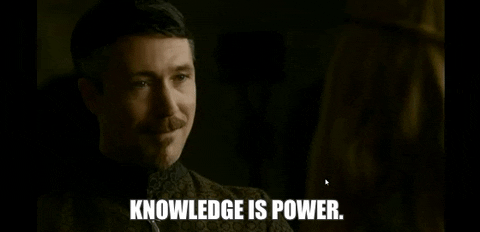
As someone who constantly compared the TV show to the books, I'll admit: the book/show comparisons put pressure on the series that other shows just don't get. It might not be fair that the showrunners couldn't get away with as much as showrunners of original TV shows without facing criticism or backlash, but it was inevitable. Every choice they made appeared not just in the context of their narrative, but in the context of the original narrative that they either chose to stick to or adjust.
So, at least for book readers, every episode of the show has a lot of extra background weight. In adapting the story, we wonder, what did the writers choose to keep the same? What did they choose to change? And so plot elements that might seem innocuous on their own take on a different context and greater meaning, because we can see exactly what the showwriters chose not to do.
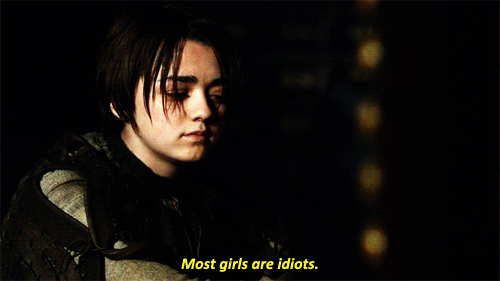
This came out a lot, at least for me, when looking at the female characters of the show. The show was done no favors by comparisons to books where many of the female characters were more complex, and less tortured (and, considering how much the female characters suffer in the books, that is really saying something). Show!Brienne, on her own, is a gruff, impatient badass female knight who believes in honor and loyalty. It's only once we compare her to book!Brienne that she starts to seem extra stereotypical, a parody of what a "strong warrior woman" must be, contrasted with book!Brienne's gentle heart and naivety. We see how Catelyn becomes blamed for everyone's ills and must atone, how Robb's now badass wife and their unborn child are killed at the Red Wedding, and we think... hmm. Why did they make those changes? Why did they think they were narratively stronger? Why did they think audiences would prefer them? Why, when they could have chosen an option that gave female characters more nuance and showed less violence against them, did they opt for this instead?
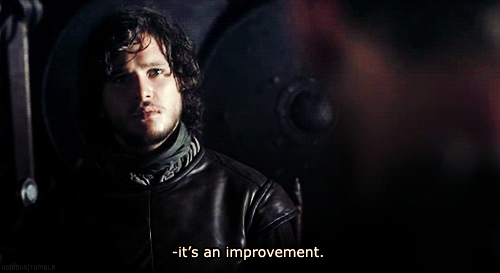
But it's not fair to say that the books were always better and the show was always worse. In fact, the show made several of narrative choices that improved the plot. Yet the show was still held back by the need to follow the general arc of the novels.
Perhaps the best example is Shae's development over the first three and a half seasons of the show. The TV series gave her a lot more depth and humanity than she has in the books, making for a far more interesting and compelling story, and a fare more sympathetic character. The problem arose when the show then attempted to return to the books' plot, without considering its new implications. After several seasons of character development, after her friendship with Sansa, Shae betrays Tyrion, and he murders her. Shae does nothing to help Sansa, and doesn't even seem to care about what happened to her. There's no narrative explanation for why she turned on him, no chance to explore her perspective to see what exactly the Lannisters told her and why she made that choice. The show's narrative crashes back into the story of the books, and it's jarring at best, deeply misogynistic-feeling at worst.
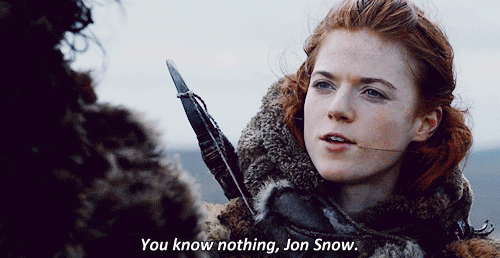
Free of the books, the show is able to make its own choices without facing that extra layer of analysis. The writers can choose to make Dany burn everything to the ground and Arya cook people into pies, and these moments get to stand on their own. They are simply what happens in the story, without any "what should have been" lingering in the background. We might criticise a lack of character consistency, but there's no existing narrative that we know they chose to follow or go against. If things don't quite feel right, it gets to feel more accidental, a result of weak writing, rather than malicious.
Because it did feel malicious, at times. Perhaps that shows too much investment in a fictional world, but it's true. When you see a female character changed so that she is more unlikeable, more stereotypical, more one-note, it feels like the show is saying "complex women are bad. Old stereotypes are better." When female characters were made to suffer tortures in addition to the ones in the books, we wonder why the writers chose to make the character suffer even more, and can end up feeling like it's because the writers think that suffering is good, somehow. That facing abuse makes female characters more sympathetic.
I think this is most clear in Season 5, when the show merges Sansa's plotline with Jeyne Poole's and marries her to Ramsey Bolton. Without the comparison, I'm pretty sure I still would have flipped out over this story arc. But the comparison to the books gives a different context. On the one hand, it seems like a practical way to get Sansa back into the North and involved in the main plotline, where she needed to be. But it also feels like they were looking for an easy way to solve that problem and said "oh, this will do," throwing her into that story of extreme abuse and suffering instead of developing a plotline of her own -- and this is after already giving her a narrative arc that was supposed to show her becoming a Serious Player in the show. It feels like they just really wanted to torture her, whether or not that's true.
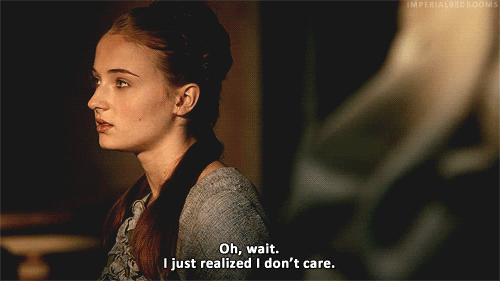
The big problem, though, is that the series doesn't really put much effort into making sense. Without the guidelines of the books to follow, people start teleporting everywhere. And while that can be handwaved in the name of narrative expediency, I started to notice more fundamental things that no longer made sense. As a book reader, I've always had the details in the books to fill in any gaps left by the show, whether I realized it or not. If things weren't clearly explained in the show, it didn't really matter, because I still knew who all these characters were, and I'd read their chapters explaining why they acted the way they did.
Without that, the sloppy storytelling feels sloppier. I hope I wasn't alone in having moments where I was left wondering what the hell was going on, struggling to understand the mythology of the wights vs the White Walkers. The show is free of comparisons that make it look bad, but it also has to stand far more alone now, and the cracks show.
That's not to say that I'm not looking forward to Season 8. I really, really am, in part because I can’t get tied up in these painful comparisons any more. But I'm viewing it like an AU fanfic, one that's not always great with its characterisations or plot, but one that's pulled me in and made me intrigued to see how it ends -- separate from whatever the books themselves have in store.
